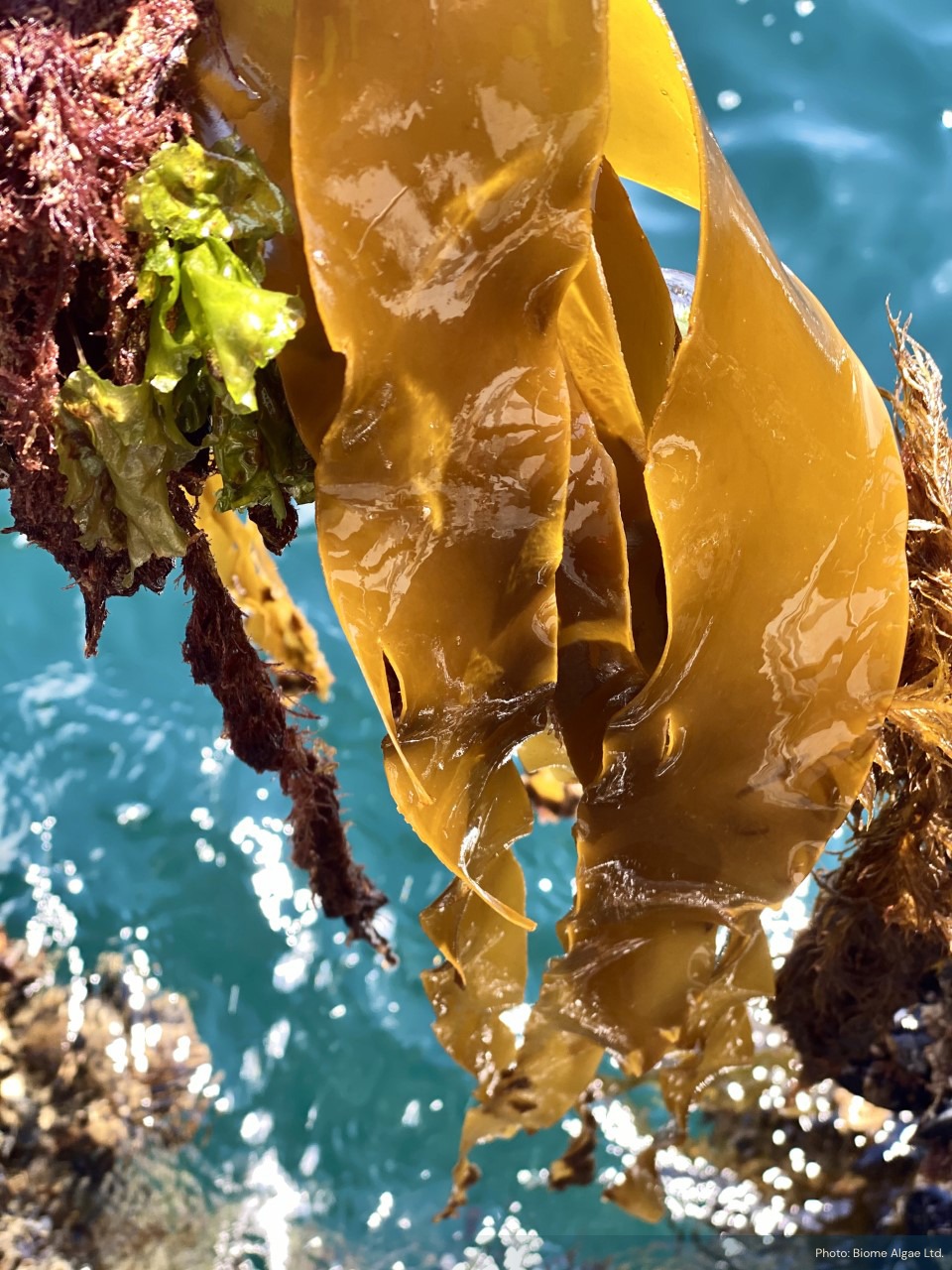The Seaweed for Europe Coalition has recently launched with 30 diverse members, spanning 10+ European countries, including actors from across the seaweed value chain, investors and thought leaders. The Coalition aims to advance the development of a sustainable ocean economy and drive post-COVID-19 green recovery. To this end, it will focus on defining and implementing a clear change agenda for the scaling of an innovative, resilient and fair seaweed industry.
‘HDDEN CHAMPION’ OF THE OCEAN
To many, seaweed is no more than an undesirable companion encountered when swimming in the ocean – its diverse environmental, social and economic benefits often little understood or overlooked. Seaweed, however, in fact is somewhat of a ‘hidden champion’. Within the ocean ecosystem, seaweed for example provides essential services such as food and habitat for fish and other species. Research further suggests a significant carbon sequestration and nitrogen absorption potential. Requiring no freshwater, fertiliser or cleared land to grow, sustainably grown seaweed also is a prime example of a regenerative ocean material, which can be used in a multitude of applications, including healthy human food, highly advanced drugs, low carbon animal feed, fully biodegradable bioplastics, organic fertiliser
In short, seaweed can play a vital role in addressing issues such as climate change, food and energy security and social prosperity as well as drive green and resilient recovery.
WINDOW OF OPPORTUNITY
The new Seaweed for Europe coalition is seeking to tap into this potential by accelerating the sustainable seaweed industry in Europe.
The global seaweed market currently is on an upward trajectory, projected to grow at 12% a year towards 2024[1]. Asia is the focal point of the industry, while Europe remains the top importer of seaweed products worldwide in terms of value ($613m in 2016).[2]
At the same time, Europe is home to a burgeoning community of innovators, offering a range of novel business models and solutions, including highly automated farming technologies, selective breeding approaches or alternative types of feedstock which reduce methane emissions from ruminants.
“There is a real buzz in the industry right now. Innovative players are eager to catalyse growth, but in a sustainable manner: climate friendly, fairer and more collaborative, resilient to future shocks”, explains Adrien Vincent, Programme Director, Seaweed for Europe. “In order to unlock this potential, we must create greater awareness of the ‘hidden champion’, especially among high-level policy and business decision-makers, to ensure better regulation and mobilise investments into the industry. This is where the work of the Coalition will play a central role.”
ALIGNMENT WITH GREEN RECOVERY AGENDA
The potential offered by seaweed is also closely integrated with the objectives of the European Green Deal, as the Commission looks to develop clean-tech and low-carbon industries, support regenerative agricultural models and create new opportunities for employment as part of its long-term post-COVID-19 recovery strategy. “Seaweed addresses some of the core challenges we currently face, offering promising solutions which can support green recovery”, says former EU-Commissioner and SYSTEMIQ Partner Janez Potočnik.
WHAT’S NEXT
In a first step, the Coalition will work towards quantifying the underlying business case for the industry by:
- Defining the potential for market growth
- Identifying intervention points along the value chain, and
- Determining corresponding investment needs.
These findings will then be translated into an on-the-ground action programme driven by Coalition members.
Seaweed for Europe will also offer its members a programme for networking, knowledge exchange and best practice sharing, to ensure cross-value chain engagement, foster innovation and spread awareness surrounding the true potential of seaweed.
“As the Coalition steps up its pace, we call on all interested stakeholders to work together in creating an integrated and forward-thinking industry”, urges Vidar Helgesen, Co-Chair of the Coalition. “This is an opportunity to get it right from the start by determining the most sustainable path for an industry as it grows – let’s learn from successes as well as mistakes made in other industries and accelerate seaweed to fulfil its full potential.”
[1] Allied Market Research: https://www.alliedmarketresearch.com/seaweed-market
[2] FAO, “The global status of seaweed production, trade and utilization”, 2019, p. 52



;)
